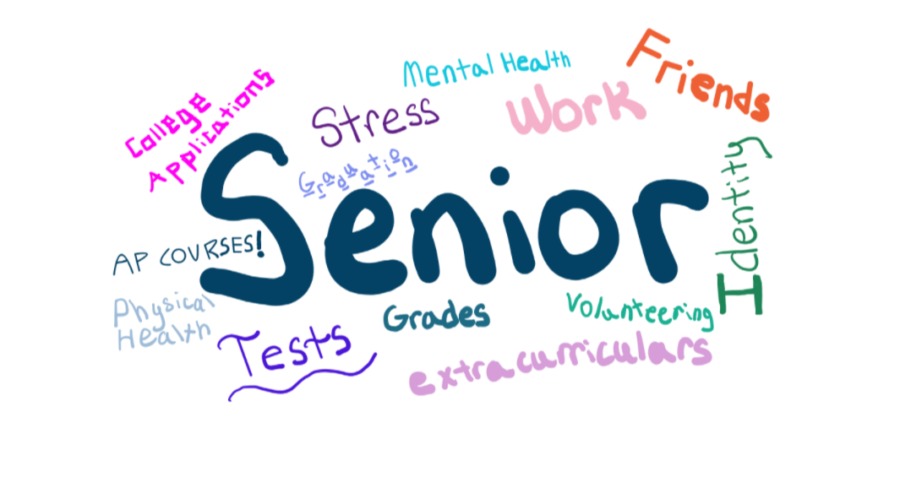Colleges’ Absurd Expectations
Some of the stress factors high school seniors feel like they need on a college resume to impress the institution.
Colleges look for good grades, hard classes, and a range of extracurriculars in their prospective students. Though some of these expectations are doable, high schoolers don’t have enough time to do all this while leaving enough time for mental and physical health.
When I applied for the Boettcher Scholarship, there was a so-called “Competitive Quiz” that ranked your competitive rank to receive the scholarship. Even though I participate in club soccer, high school soccer, volunteering, work, and other activities, they ranked me as having a low likelihood of winning the scholarship and asked me if I’d started my own business.
On average, I get less than seven hours of sleep, even though the average amount needed for teenagers is 8-10 hours each night. According to Nationwide Children’s, teenagers get an average of 7-7 ¼ hours of sleep. It also states that sleep deprivation affects mood, behavior, cognitive ability, and academic performance. The pressures to do well in and outside of school are affecting teens’ mental health because there’s a worry that high school defines our futures and where we get into school.
Coinciding with less sleep, colleges expect students to take rigorous classes. With such a difficult course load, taking only advanced or AP classes increases students’ stress levels. According to the University of Wisconsin Press, high school students taking AP classes have higher levels of anxiety due to the “pressure and rigor.” In accordance with this, the study also revealed that students’ confidence level to pursue a job in STEM decreased. Taking AP Physics this year, I questioned my ability to apply to colleges for math or science majors. I began to doubt my academic abilities and my knowledge of STEM subjects.
When applying for colleges, I’m often asked who I am and what defines my character. At 17 years old, I shouldn’t be expected to know exactly who I am or what I want to be in the future—that’s exactly what college is for. We’re expected to know what our lives will look like in ten years, which rarely people know even if they’re well out of high school. Our brains aren’t even fully developed until we’re 25 years old.
In high school, we should be focusing on figuring out life, ourselves, maintaining a healthy mind and body, while expanding our interest in challenging classes. With college just around the corner, these priorities are overshadowed by loading on extracurricular activities and many advanced classes, all the while increasing our stress and lowering our sleep quality. Colleges should acknowledge the stress of students and lower their expectations to support the well-being of students, which will benefit everyone in the long run with better grades and better students. Instead of adding the stress of doing activities to look good on a paper to get accepted, colleges should instead focus on the courses students are taking and if they are engaging in the community while challenging themselves.

Caitlin is a senior at Boulder High School and a new member of The Owl. By joining the newspaper, she hopes to use it as an outlet to share interesting stories, dive deeper into topics that interest her, and have a more thorough understanding of journalism. Not only does she like writing, but she plays both club and high school soccer. She started the sport when she was in 4th grade and has continued to love the game more each year. Unless she has soccer practice, she often goes to get boba tea with friends or the swings at North Boulder Park at night with them. Ever since she was young, she’s loved to bake cakes and cupcakes. Her favorite part of the process was decorating and making them...


